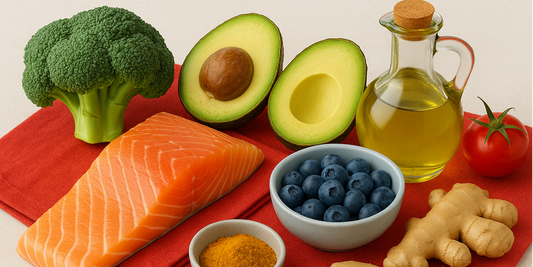
Unveiling the Hidden Truth: The Downside of Relying on Meal Replacement Shakes
Share
Over the years, meal replacement shakes have gained popularity as convenient solutions to satiate hunger and supplement your nutritional intake. However, while they may seem like an easy fix for weight management or quick nutrition, these beverages are often packed with artificial ingredients and high levels of sugar.
This can lead to health issues in the long run, causing more harm than good. In this article, we will delve into the reasons as to why it might be time to rethink your reliance on these so-called 'healthy' meal substitutes.

What Are Meal Replacement Shakes?
Meal replacement shakes are beverages designed to substitute a solid meal. They are typically fortified with minerals and vitamins, aiming to emulate the nutritional value of a full meal. These portable shakes are often low in calories and high in protein, making them popular among those looking to lose weight or supplement a high-protein diet.
However, not all meal replacement shakes are created equal. Many on the market are laden with artificial ingredients and a hefty dose of sugar, masquerading as a 'health drink.' They're often consumed in place of breakfast or lunch or after a workout, but the hidden sugars and synthetic compounds they contain can have negative impacts on overall health. It's crucial to read labels and make informed decisions about these products.

Healthy Meal Replacement Shakes Vs. Healthy Food
While healthy meal replacement shakes offer convenience, they often fall short when compared to whole foods. Whole foods are rich in fiber, antioxidants, and a host of other vital nutrients that are often lacking in meal replacement shakes - even the healthiest options. Consuming whole foods also promotes better digestion and satiety as the body works to break down and absorb these nutrients.
On the other hand, healthy meal replacement shakes, especially those low in artificial ingredients and sugar, can be beneficial in certain scenarios. They can serve as a quick alternative when you're pressed for time or lack access to nutritious meals. However, they should not replace whole foods entirely. The lack of fiber and satiety, the potential for overconsumption of certain nutrients, and the possibility of missing out on the complex nutrient interactions found in whole foods are significant drawbacks.
So, while healthy meal replacement shakes can be a part of a balanced diet, they cannot replace the broad spectrum of nutrients provided by whole foods. It's critical to view these shakes as a supplement to a healthy diet, not as a replacement for balanced, nutritious meals.
5 Reasons To Stop Drinking Meal Replacement Shakes Today
If you're still on the fence about meal replacement shakes, here are 5 reasons why it may be time to rethink this habit:
● Added Sugars
Most meal replacement shakes contain added sugar, which can lead to health issues after a few years. While it's important to note that some of this sugar is naturally occurring, a significant portion of it is often added to enhance the flavor and texture. This may be unacceptable for those who are looking to reduce their sugar intake or follow a low-sugar diet.
● Added Artificial Ingredients
Artificial ingredients are often added to meal replacement shakes to maintain shelf-life and enhance texture. Although these ingredients may be low in calories, they also lack the beneficial nutrients found in whole foods. Furthermore, long-term exposure to these synthetic compounds can have adverse side effects on health.
● Disrupts The Digestive System
Meal replacement shakes lack the fiber content found in whole foods. This can have a negative impact on digestion and satiety, as it takes more time for these drinks to leave the stomach. Low dietary fiber can also lead to digestive issues such as constipation over time.
● Too Low In Calories
Meal replacement shakes are often low in calories, which can be beneficial for those looking to lose weight. However, they may also cause unintentional caloric deficits if consumed too frequently or in place of balanced meals. This can lead to fatigue, loss of muscle mass, and a drop in energy levels over time.
● Unsustainability
Finally, relying too heavily on meal replacement shakes for nutrition can be unsustainable in the long run. It's important to find a balance between whole foods and supplements if you're looking to reach your health goals.
Consuming meal replacement shakes in moderation can be beneficial for those with dietary restrictions or busy lifestyles. However, it's important to remember that these drinks are not a substitute for balanced meals but a convenient supplement. Always read labels and select products with minimal added sugars and artificial ingredients when possible. With this knowledge, you can use meal replacement shakes in conjunction with healthy eating habits to support your overall health and wellbeing. Remember, it's always best to get your nutrients from real, whole foods.



